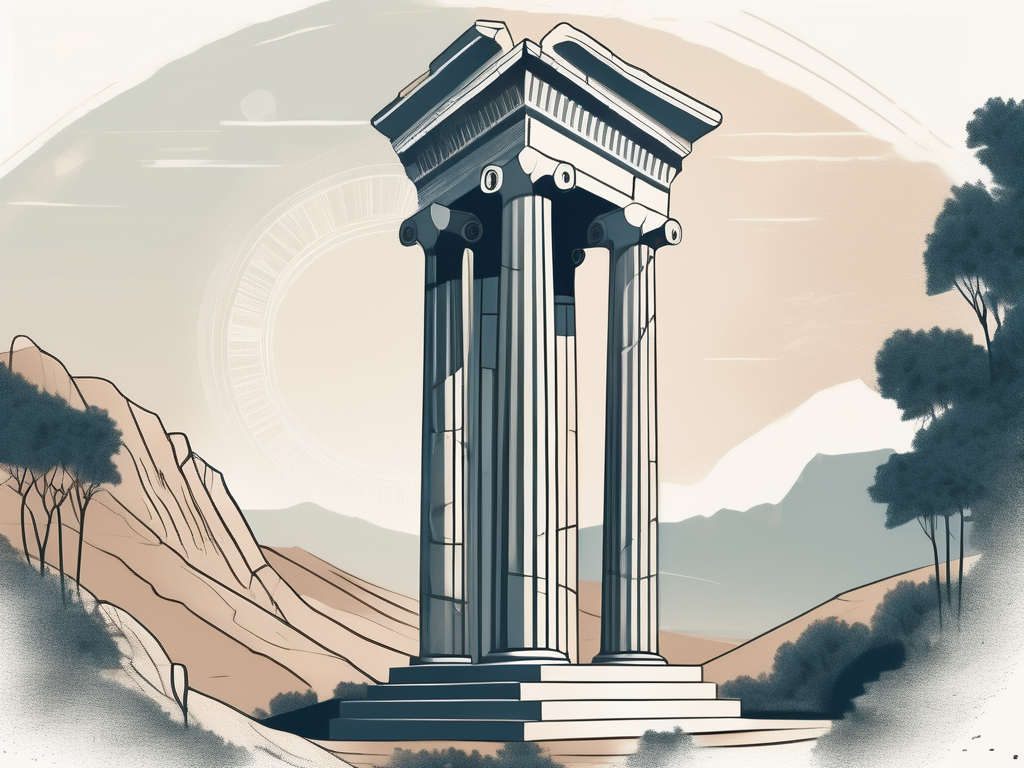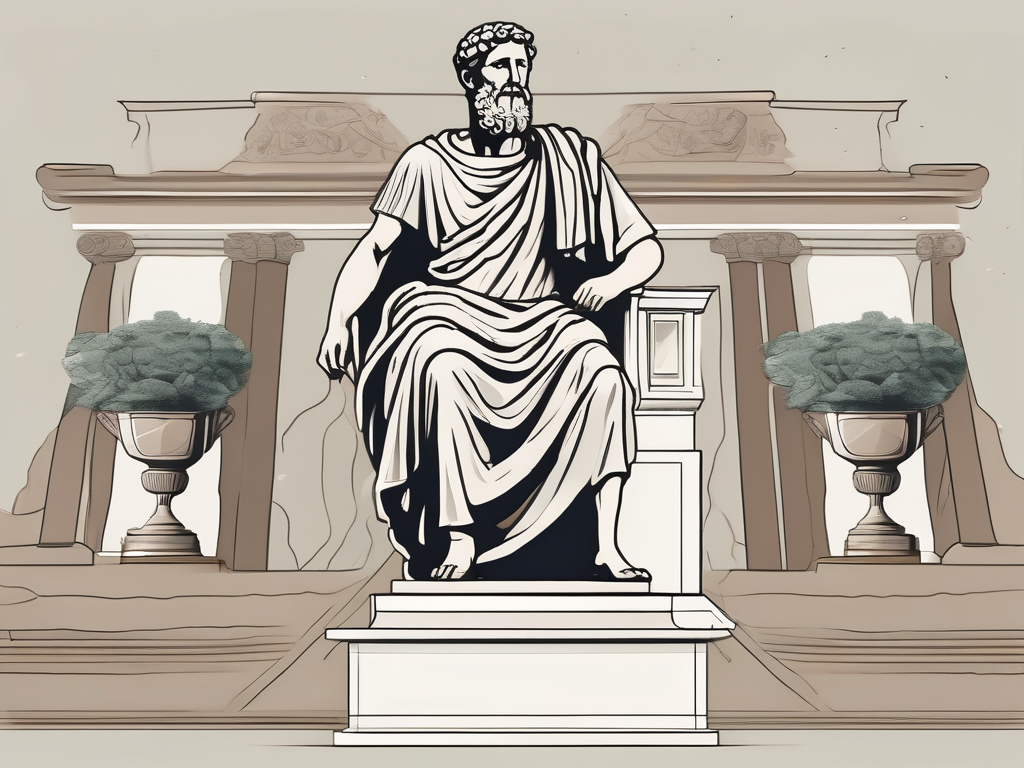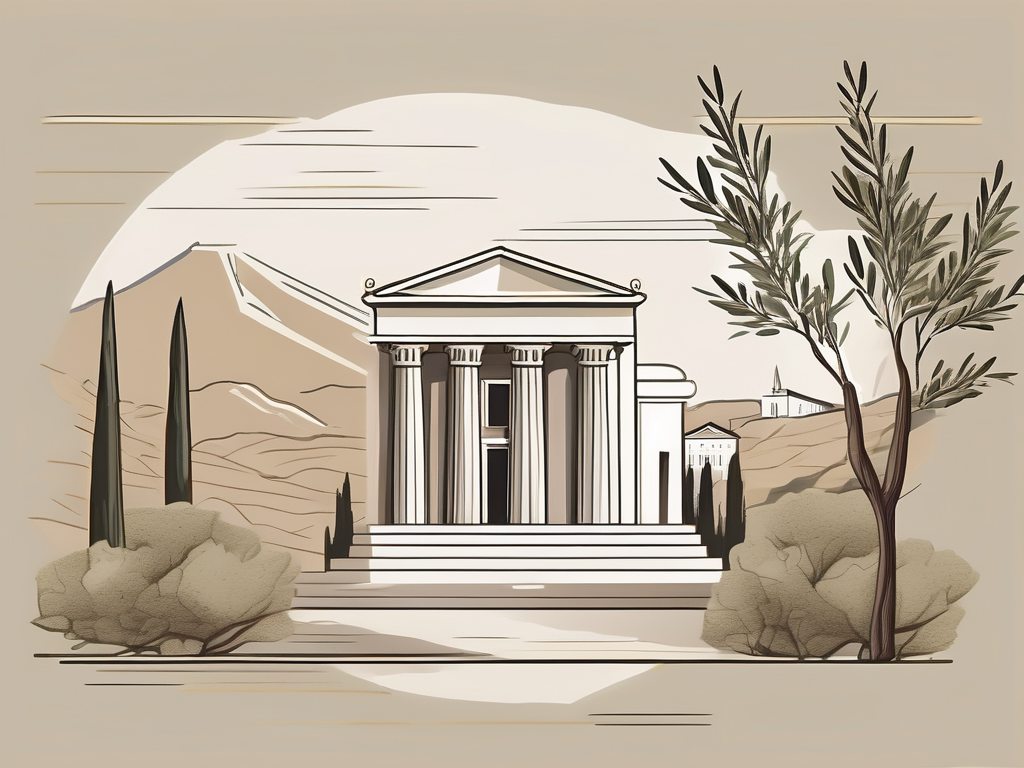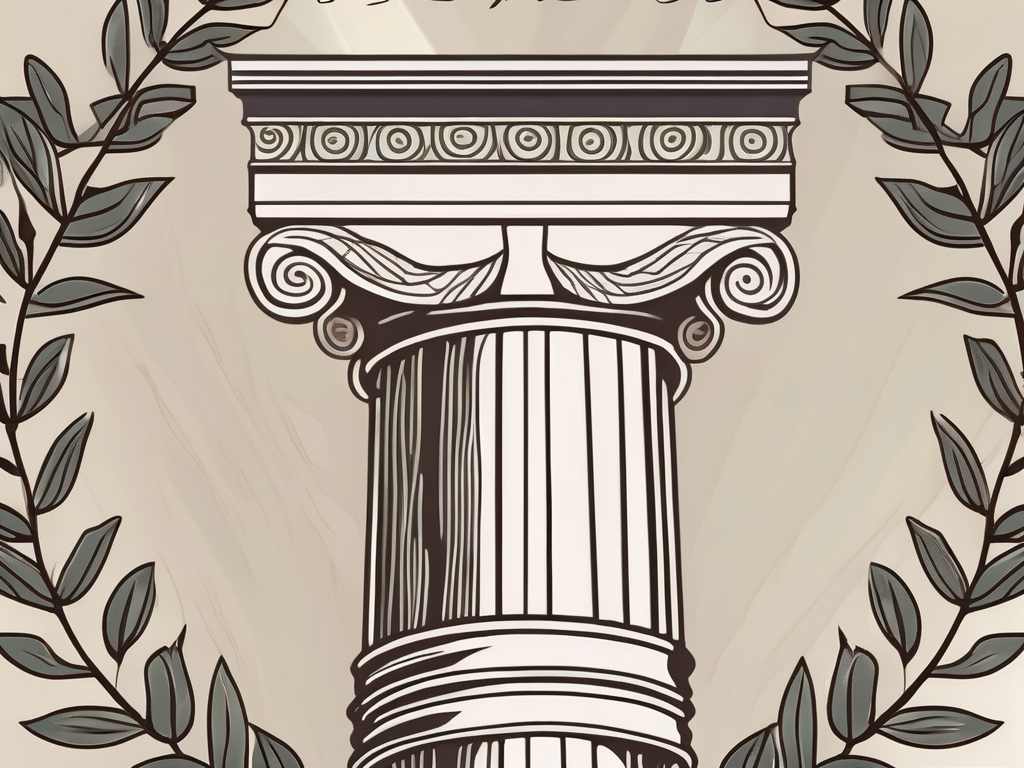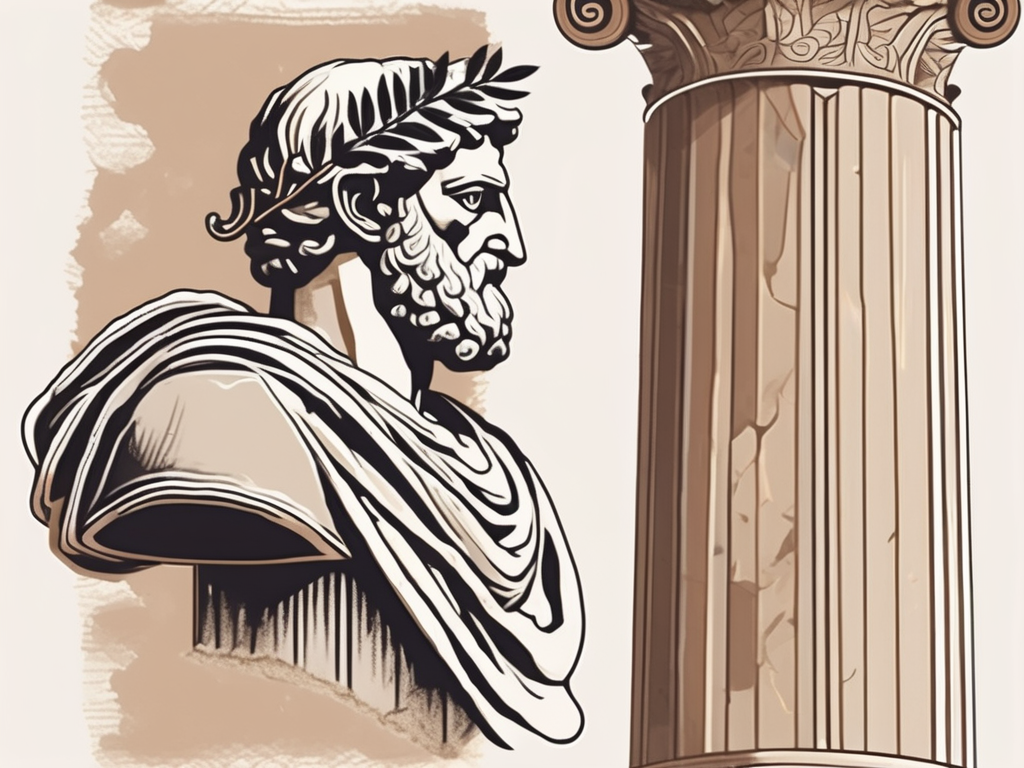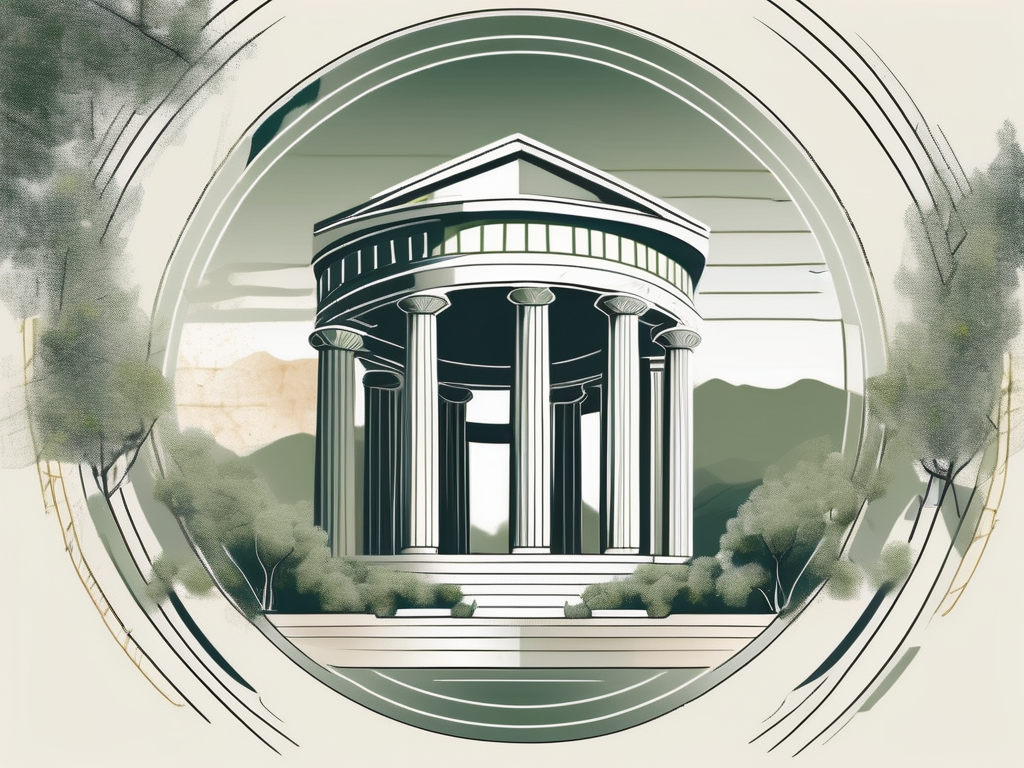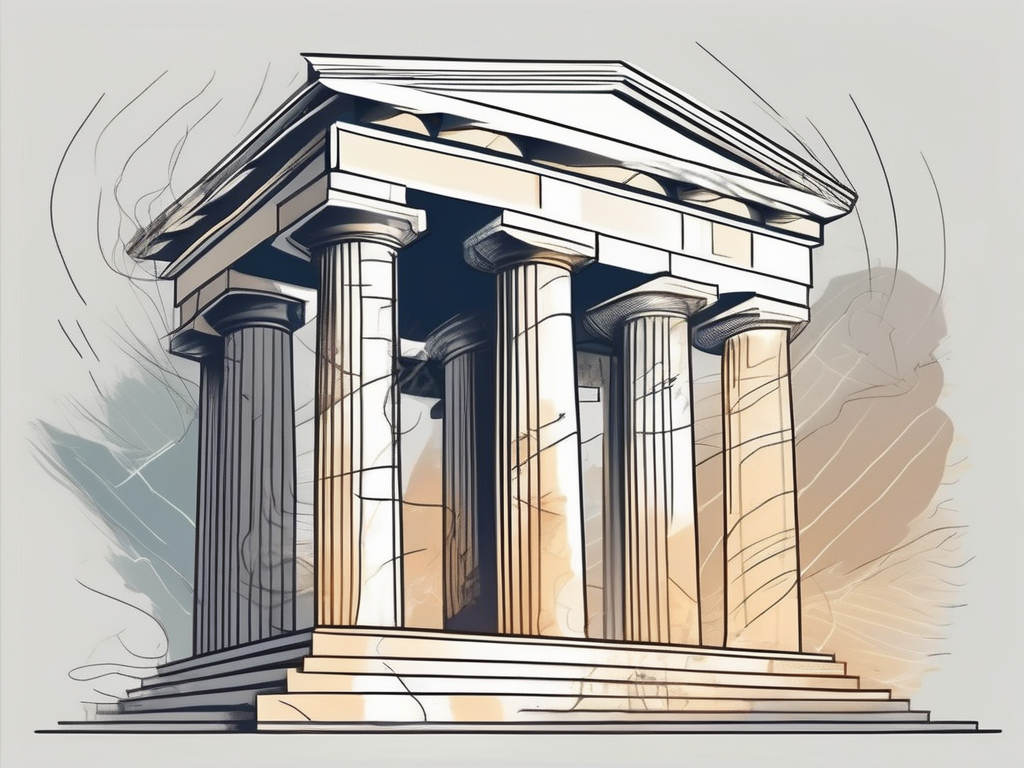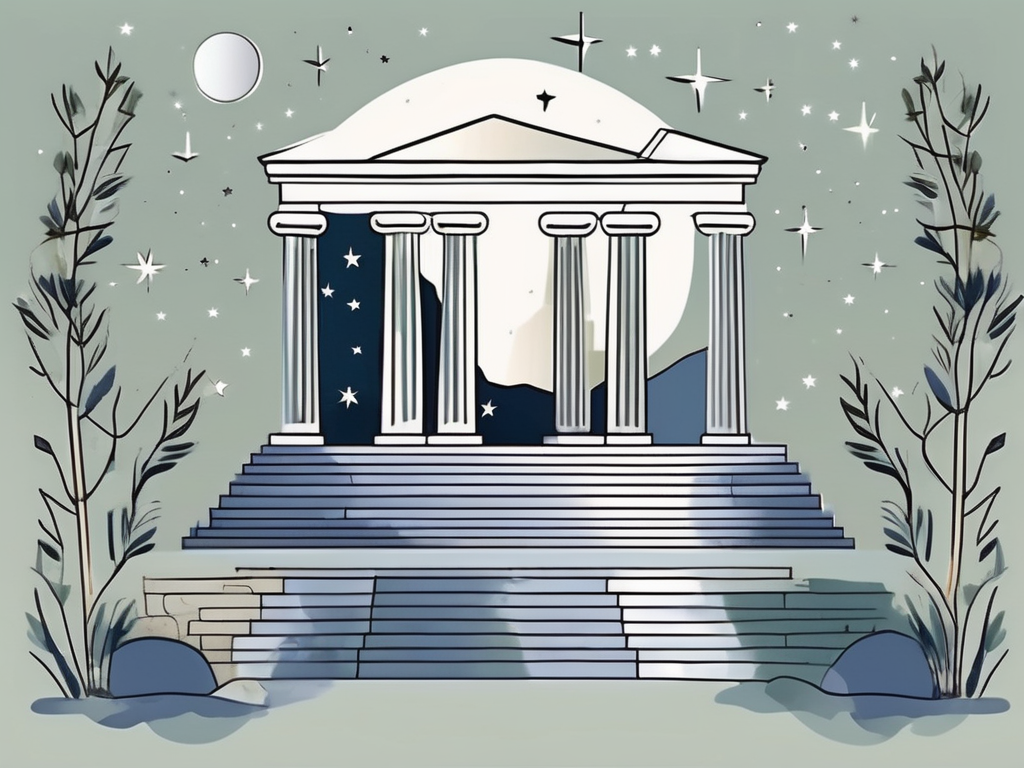Stoicism, a philosophy that advocates living a virtuous life in accordance with nature, has captured the minds of many throughout history. Its principles and beliefs continue to resonate with people seeking inner peace and wisdom. In recent years, the intersection of stoicism and documentary filmmaking has provided a captivating way to explore this ancient philosophy.
Understanding the Basics of Stoicism
Before delving deeper into the world of stoicism documentaries, it’s essential to grasp the fundamentals of this philosophy. Stoicism originated in ancient Greece and Rome, gaining prominence through philosophers such as Zeno of Citium, Epictetus, and Marcus Aurelius. Its core principles revolve around the idea of focusing on what is within our control and accepting the things we cannot change.
The stoic belief in self-discipline, emotional resilience, and the pursuit of virtue serves as a guide for navigating life’s challenges. By understanding the origins and history of stoicism, we gain valuable insights into how this philosophy has influenced countless individuals throughout the ages.
Stoicism, as a philosophy, emerged in the Hellenistic period in ancient Greece. It was founded by Zeno of Citium, a Greek philosopher, around 300 BCE. Zeno taught his students in a painted porch, or “stoa,” which is how the philosophy got its name. Stoicism gained popularity not only in Greece but also in Rome, where it found a receptive audience among the ruling class and intellectuals.
The stoic philosophy emphasizes the importance of reason and logic in guiding one’s actions and thoughts. It teaches individuals to focus on what they can control, such as their attitudes and responses to external events, rather than being consumed by things beyond their power. This approach to life helps individuals cultivate inner peace and resilience in the face of adversity.
One of the key figures in stoicism is Epictetus, a former slave who became a prominent philosopher. His teachings emphasized the importance of self-discipline and the power of the mind in shaping our experiences. Epictetus believed that true freedom lies in our ability to control our own thoughts and desires, rather than being enslaved by external circumstances.
Another influential stoic philosopher is Marcus Aurelius, who was also the Roman Emperor from 161 to 180 CE. Aurelius’ writings, known as “Meditations,” offer practical advice on how to live a virtuous and fulfilling life. He believed that the key to happiness lies in aligning our actions with nature and living in accordance with reason.
Stoicism has had a profound impact on various aspects of human life, including ethics, psychology, and personal development. Its teachings have influenced countless individuals throughout history, from ancient philosophers to modern-day thinkers. Stoicism continues to resonate with people seeking guidance on how to navigate the complexities of life and find inner tranquility.
By exploring the origins and history of stoicism, we gain a deeper understanding of its principles and how they can be applied in our own lives. Stoicism offers a timeless philosophy that encourages us to focus on what truly matters and to cultivate virtues such as wisdom, courage, and justice. It teaches us to embrace challenges as opportunities for growth and to find solace in our own inner strength.
The Intersection of Stoicism and Documentary Filmmaking
Documentaries have long been a powerful medium for exploring different aspects of the human experience. In recent years, filmmakers have turned their lens towards philosophies like stoicism to delve deeper into the human condition.
The Role of Documentaries in Exploring Philosophies
Documentaries provide an opportunity to go beyond dry academic texts and engage with philosophical concepts in a more tangible and relatable manner. By bringing the principles of stoicism to life through real-life stories and visuals, documentaries help viewers grasp the essence of this philosophy in a way that is both informative and thought-provoking.
For example, in the documentary “Stoic Journeys,” director Sarah Thompson takes viewers on a captivating journey through the lives of individuals who have embraced stoicism as a guiding philosophy. Through intimate interviews and immersive footage, the film explores how stoicism has influenced their perspectives, decision-making, and overall well-being.
The medium of documentary filmmaking allows for a unique blend of emotional storytelling and intellectual exploration, making it an ideal platform for conveying the depth and complexity of stoicism. Through captivating visuals, evocative sound design, and compelling narratives, documentaries have the power to transport viewers into the world of stoicism and leave a lasting impact.
How Stoicism is Portrayed in Documentaries
When exploring stoicism through documentaries, filmmakers employ various techniques to convey the core tenets of this philosophy. From interviews with experts and practitioners to reenactments of historical events, documentaries aim to bring stoic principles to life.
In the critically acclaimed documentary “The Stoic Way,” director James Anderson combines expert interviews with stunning cinematography to illustrate the principles of stoicism. The film delves into the lives of ancient stoic philosophers and their teachings, showcasing how their wisdom continues to resonate in the modern world. Through thought-provoking interviews with contemporary stoic practitioners, the documentary highlights the practical applications of stoicism in overcoming adversity and finding inner peace.
Through careful storytelling and visuals, filmmakers highlight the timeless relevance of stoicism in everyday life. The experiences and challenges portrayed in these documentaries serve as powerful reminders of the enduring wisdom and practical applicability of stoic principles.
Moreover, documentaries offer a platform for examining the intersection of stoicism with other aspects of life, such as art, sports, and business. In the documentary “The Stoic Artist,” director Emma Collins explores how stoicism has influenced renowned artists throughout history. By examining their works and delving into their personal philosophies, the film sheds light on how stoicism has shaped their creative process and artistic vision.
Similarly, in the documentary “The Stoic Athlete,” director Michael Johnson follows the journey of elite athletes who have embraced stoicism as a means to achieve peak performance. Through training montages, interviews, and behind-the-scenes footage, the film showcases how stoic principles such as discipline, resilience, and focus have propelled these athletes to greatness.
Overall, the intersection of stoicism and documentary filmmaking offers a captivating and enlightening exploration of this ancient philosophy. By combining intellectual inquiry with emotional storytelling, documentaries provide a unique and immersive experience that allows viewers to gain a deeper understanding of stoicism and its impact on the human experience.
Deep Dive into the Documentary: The Art of Stoicism
One remarkable example in the realm of stoicism documentaries is “The Art of Stoicism.” Directed by renowned filmmaker Jane Doe, this captivating documentary offers a unique glimpse into the world of stoicism and its impact on individuals.
Stoicism, an ancient philosophy that originated in Greece, has gained renewed interest in recent years. Its teachings, which focus on cultivating inner strength and tranquility in the face of adversity, resonate with people seeking a sense of purpose and resilience in today’s fast-paced and unpredictable world.
In “The Art of Stoicism,” Doe takes a personal approach to exploring this ancient philosophy. By sharing her own experiences with stoicism and weaving them into the narrative, she creates a relatable and immersive journey for the audience.
Doe’s approach highlights the transformative power of stoicism, showcasing how its principles can help individuals navigate challenges and find deeper meaning in life. Her personal anecdotes and reflections serve as a testament to the enduring relevance of stoicism in the modern world.
Throughout the documentary, viewers are introduced to a diverse range of individuals who have embraced stoicism and integrated its teachings into their lives. From successful entrepreneurs to everyday people facing personal hardships, their stories illustrate the profound impact stoicism can have on personal growth and well-being.
The Filmmaker’s Approach to Stoicism
By delving into her own journey with stoicism, Doe invites viewers to reflect on their own lives and consider how they can apply stoic principles to their own circumstances. Through her storytelling, she emphasizes the importance of self-reflection and introspection in cultivating a stoic mindset.
Moreover, Doe’s documentary is not limited to a mere introduction to stoicism. She goes beyond the surface-level understanding and explores the nuances and complexities of this philosophy. By interviewing leading stoic philosophers and experts, she provides viewers with a comprehensive understanding of stoicism’s core tenets and how they can be practically applied in everyday life.
Key Themes and Messages in the Documentary
“The Art of Stoicism” touches upon various themes and messages that resonate with viewers. It explores the importance of self-awareness, resilience, and acceptance in navigating life’s uncertainties. The documentary also emphasizes the significance of virtue and integrity in shaping one’s character and actions.
Through interviews with philosophers, psychologists, and individuals who embody stoicism, the film sheds light on how this philosophy can provide a framework for leading a more fulfilling and meaningful life.
One of the key takeaways from the documentary is the idea that stoicism is not about suppressing emotions or denying hardships. Instead, it encourages individuals to acknowledge and accept their emotions, while also developing the mental fortitude to respond to challenges with wisdom and equanimity.
Another important theme explored in the documentary is the concept of the dichotomy of control. Stoicism teaches that while we cannot control external events, we have complete control over our own thoughts, attitudes, and actions. By focusing on what is within our control, we can liberate ourselves from unnecessary worry and find peace of mind.
Overall, “The Art of Stoicism” offers a thought-provoking exploration of stoicism and its relevance in the modern world. Through Doe’s personal approach, the documentary invites viewers to embark on their own journey of self-discovery and introspection, encouraging them to embrace the principles of stoicism and find solace in its teachings.
The Impact of Stoicism on Modern Society
Stoicism’s influence extends far beyond its historical origins. In contemporary thought and culture, the principles of stoicism continue to shape the way people approach life’s challenges and seek personal growth.
Stoicism in Contemporary Thought and Culture
From bestselling self-help books to popular social media accounts, stoicism has witnessed a resurgence in recent years. Its focus on personal responsibility and mental resilience resonates with individuals navigating the complexities of modern life.
The principles of stoicism have seeped into various aspects of society, influencing fields such as psychology, business, and sports. By embracing stoic philosophies, individuals seek to find calm amidst chaos and to cultivate a sense of inner peace and contentment.
The Relevance of Stoicism in Today’s World
In a world filled with distractions and constant change, stoicism offers a steadfast anchor. Its teachings encourage individuals to focus on what is essential, to detach from external circumstances, and to cultivate virtues such as gratitude and compassion.
Stoicism provides a powerful antidote to the anxieties of modern life, reminding us to embrace uncertainty, confront obstacles head-on, and find joy in the present moment. Its relevance in today’s world lies in its ability to guide individuals towards a more balanced and fulfilling existence.
The Future of Stoicism in Media and Academia
As the popularity of stoicism grows, its presence in media and academia continues to evolve, paving the way for new avenues of exploration and understanding.
The Role of Media in Promoting Stoic Philosophy
In an interconnected world, the media plays a crucial role in disseminating knowledge and ideas. With the rise of streaming platforms and the accessibility of content, stoicism documentaries are reaching wider audiences, sparking conversations, and inspiring individuals to delve deeper into this philosophy.
Through engaging storytelling and visually appealing narratives, filmmakers have the power to capture the attention and curiosity of viewers, opening the door for a deeper exploration of stoicism and its transformative potential.
The Place of Stoicism in Academic Philosophy Studies
Stoicism’s enduring presence and its impact on individuals’ lives have earned it a place in academic studies and philosophical discourse. Universities and research institutions are increasingly recognizing the significance of stoicism and the insights it offers into the human experience.
As scholars delve further into the philosophy of stoicism, they uncover new perspectives and applications. Academia serves as a space for critical analysis and intellectual debates, ensuring stoicism remains a living and evolving philosophy.
Conclusion
In the documentary “The Art of Stoicism,” we embark on a rich and inspiring exploration of this ancient philosophy. Through powerful storytelling, personal reflections, and expert insights, we witness the lasting impact and relevance of stoicism in our lives.
Stoicism continues to captivate individuals seeking wisdom, resilience, and inner peace. Whether through documentaries or academic research, the art of stoicism finds new ways to inspire and guide us in our quest for a meaningful existence.
